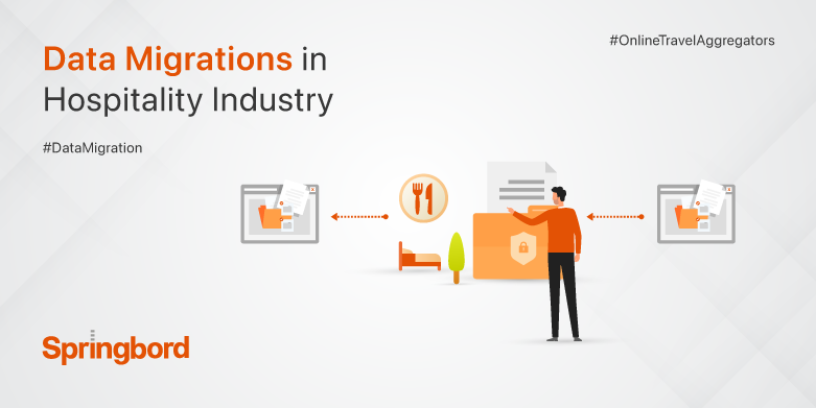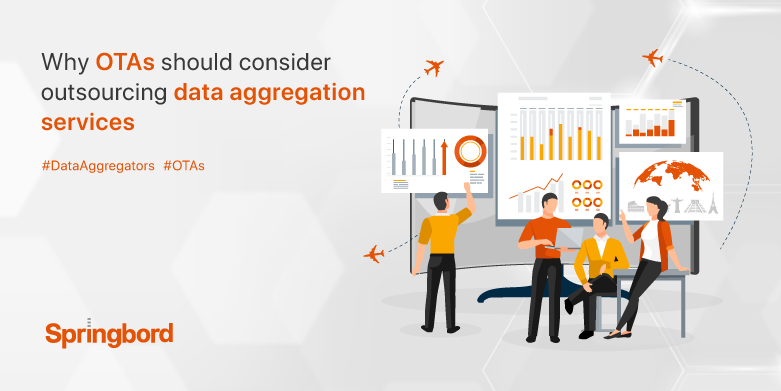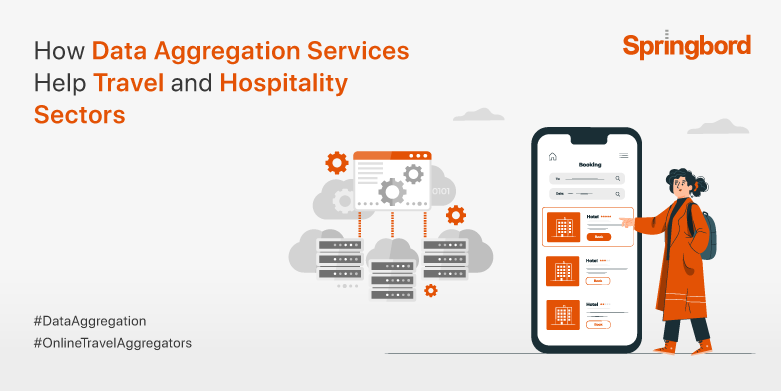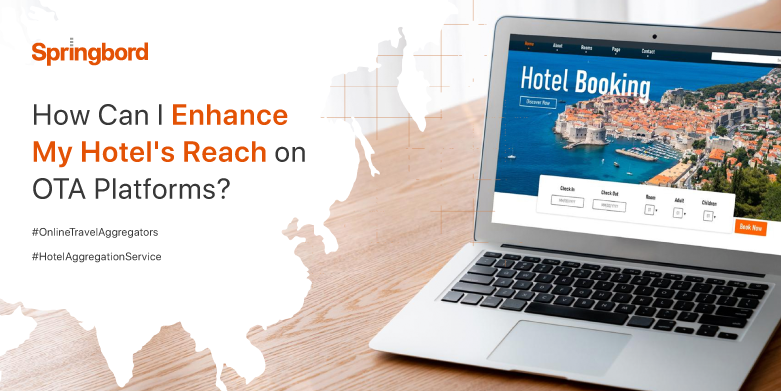 Read time 3 min
Read time 3 minHotel data migrations are a critical aspect of any business and the hospitality industry is no exception.
With the ever-increasing need to manage large amounts of data, data migrations have become an essential aspect of the industry.
In this blog, we will explore the various considerations and challenges involved in data migrations in the hospitality industry and how Springbord can help.
A. Security:
When it comes to hotel data migration, security is a major concern. Hospitality businesses deal with sensitive customer information such as credit card details, personal addresses, and contact information. The loss of such information can result in serious consequences for both the business and the customer.
To ensure the security of data during migration, it is important to use a secure transfer method such as SSL or TLS. The data must also be encrypted before being transferred. The new system must also be secure and comply with regulations such as the Payment Card Industry Data Security Standard (PCI DSS).
Springbord implements robust security measures, such as encryption and multi-factor authentication, to ensure that data is protected during the migration process. In addition, Springbord follows strict industry standards, such as SOC 2 and ISO 27001, to ensure that customer data is secure and confidential.
B. Data Value:
Data migration is an opportunity to improve the value of the data being transferred. This can be achieved by using a standard data mapping process, which helps to identify and correct any inconsistencies in the data. The data can also be enhanced by using data enrichment tools such as data append, data matching, and data enrichment services.
This can improve the accuracy of the data and make it more useful for the business. For example, data enrichment can be used to fill in missing information such as postal codes or email addresses. This information can then be used to personalize customer communications and improve customer engagement.
Springbord provides data mapping, data cleansing, and data validation services to ensure that the data being migrated is of high quality. In addition, Springbord’s proprietary data migration methodology minimizes data loss and data corruption during the migration process, ensuring that data retains its value.
C. Data Quality:
Data quality is an important factor in hotel data migration as it affects the reliability and accuracy of the data. It is essential to validate the data before migration to ensure that it is accurate and complete. This can be done by using a data quality tool or by carrying out a data quality assessment.
The assessment should include checks for missing or incorrect data, duplicates, and errors. The data should also be cleaned and transformed to ensure that it is in a format that can be easily used by the new system. For example, data might need to be transformed from a legacy system format to a modern data format such as JSON or XML.
Springbord’s data migration solution includes data cleansing, data validation, and data mapping services to ensure that the data being migrated is of high quality. In addition, Springbord’s proprietary data migration methodology minimizes data loss and data corruption during the migration process, ensuring that data remains accurate and complete.
D. Migration Costs
One of the biggest concerns for businesses during data migration is the cost involved. The cost can vary based on the size of the data, the complexity of the migration process, and the resources required to carry out the process. Factors such as hardware upgrades, data security, and software licenses can also contribute to the overall cost.
To minimize the costs, businesses can opt for cloud-based migration services or use an in-house team to handle the process. In addition, they can also take advantage of automated migration tools, which can speed up the process and minimize the chances of data loss.
Other Considerations
Aside from the cost, there are several other considerations that businesses in the hospitality industry must take into account when migrating data. Some of these considerations include data security, data privacy, and data integrity.
Data security is of utmost importance as the hospitality industry handles sensitive information, such as customer information and payment details. During the migration process, it is crucial to implement proper security measures, such as encryption, firewalls, and data backup, to protect the data from being compromised.
With the advent of data privacy regulations like GDPR, data privacy is also an important consideration. Businesses must ensure that they are complying with these regulations when migrating data and protecting their customers’ privacy.
Keeping the data’s integrity in mind is essential when doing any sort of data migration. The process must ensure that the data being migrated is accurate, consistent, and complete.
This is important to prevent data loss and maintain the accuracy of the information being used for business operations.
Conclusion:
Springbord provides a comprehensive data migration solution for the hospitality industry.
With their expertise in data migration and their commitment to ensuring that data is securely stored and processed, Springbord is the ideal solution for any hospitality company looking to manage its data more effectively.
With an emphasis on data quality and cost-effectiveness, Springbord helps companies get the most out of their data and achieve their business objectives.







